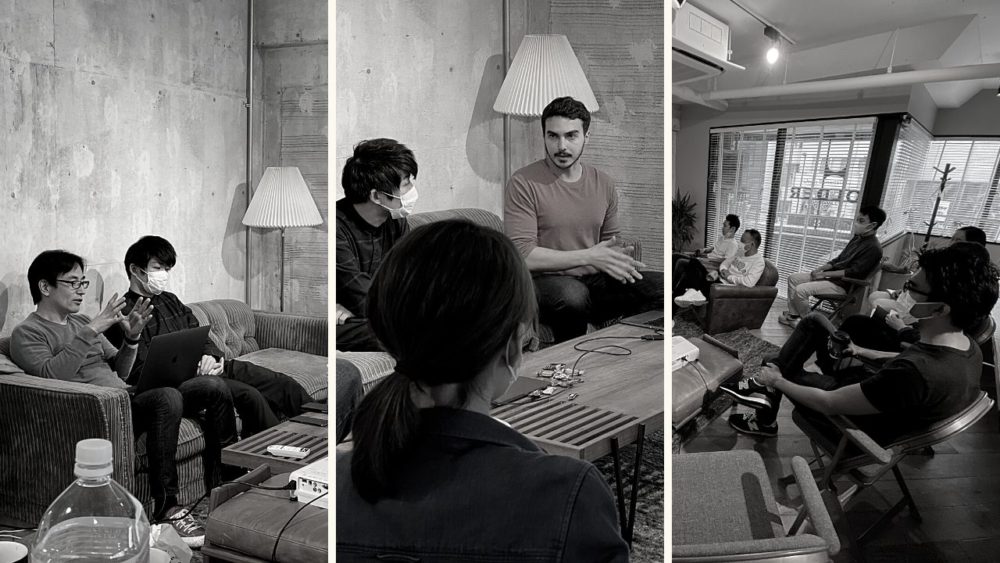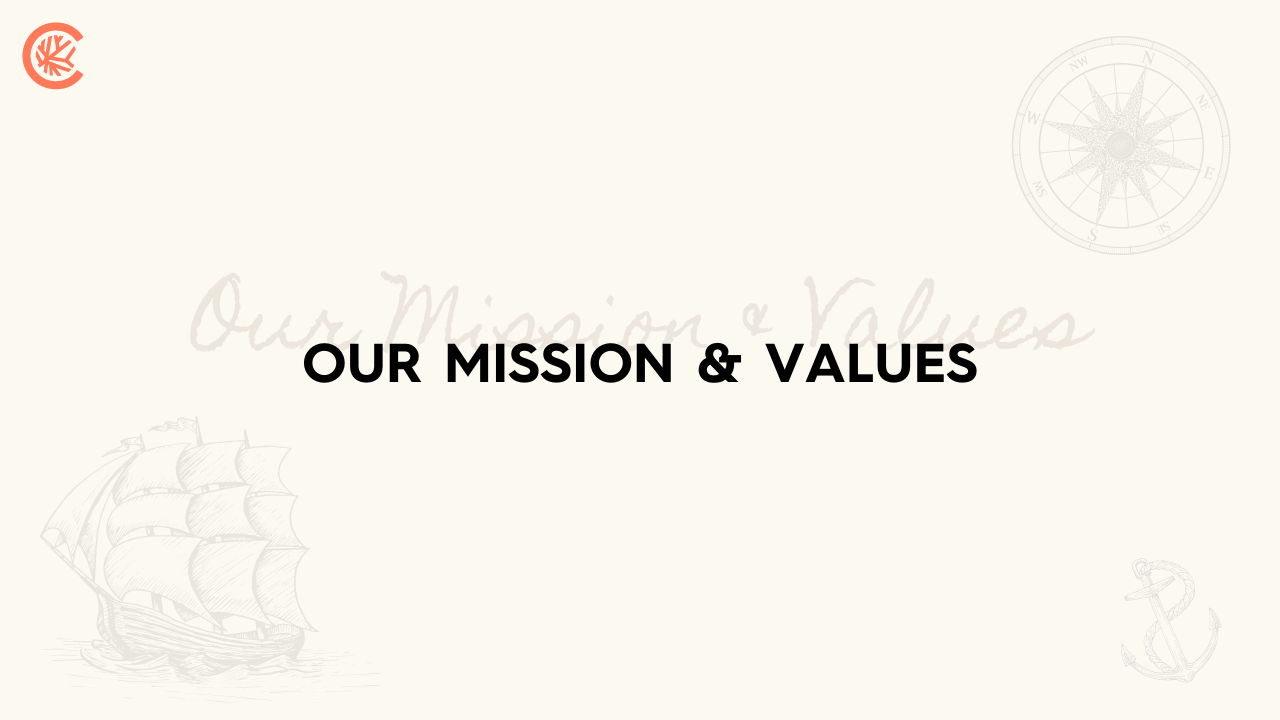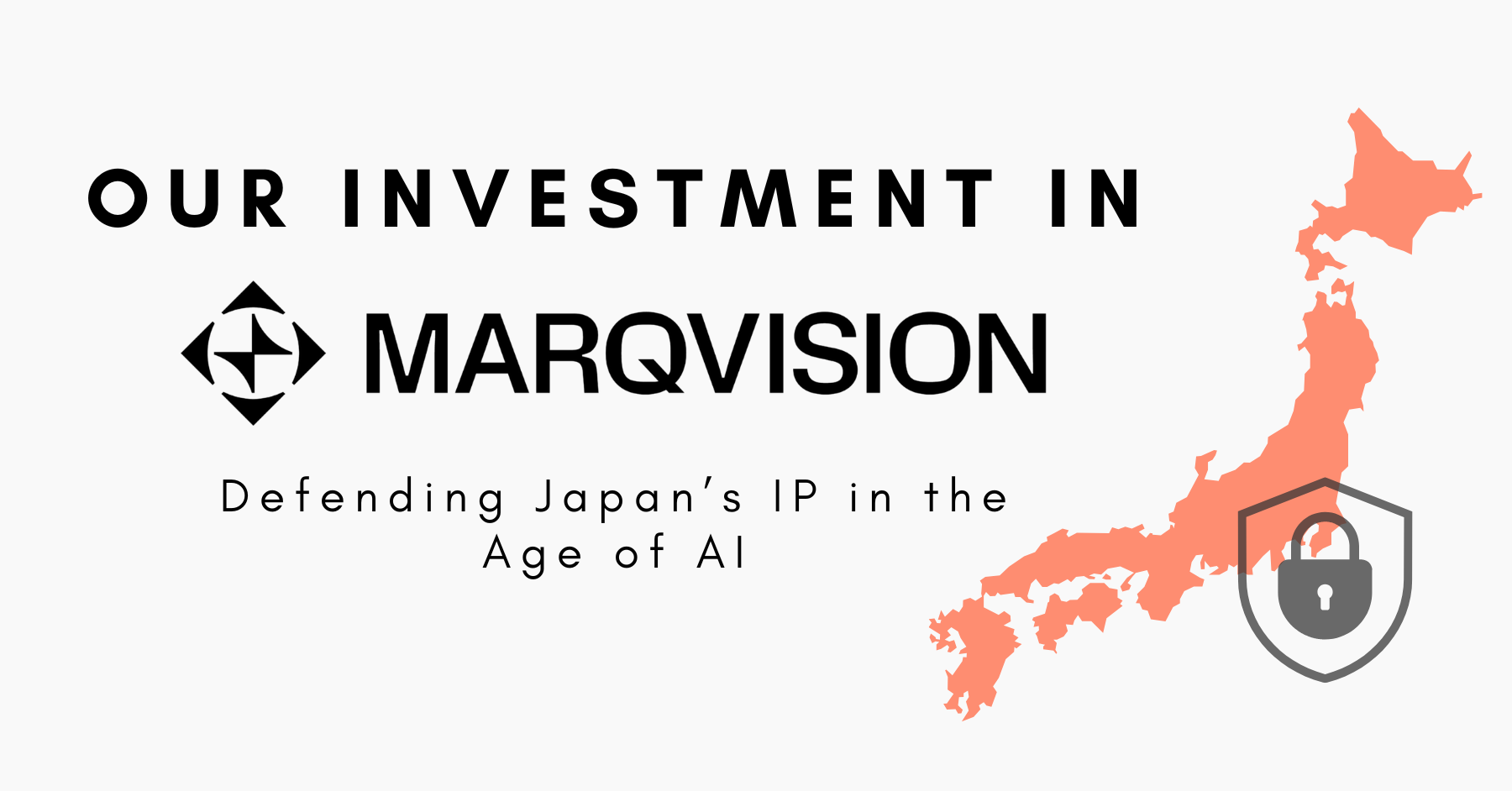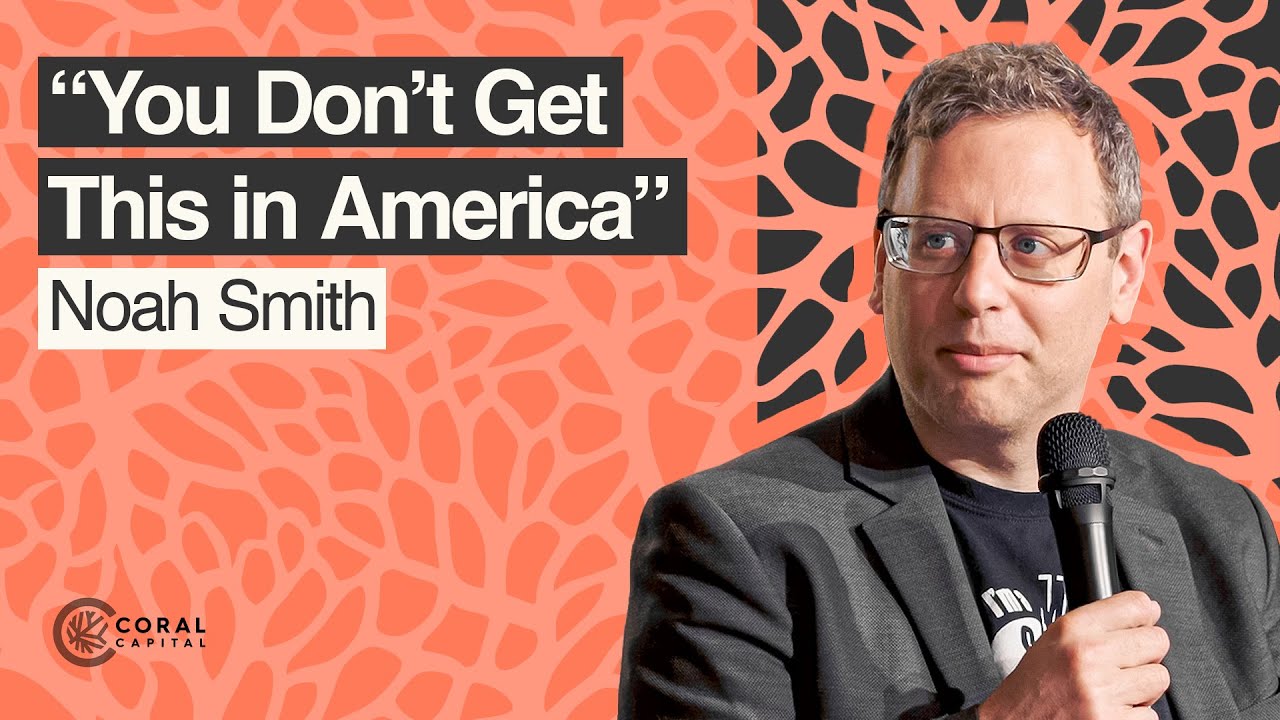Last Tuesday, my team and I had our quarterly offsite, where we get together for deep dive discussions on important matters for the firm. At most of these offsites, we primarily talk about what has been going well, what hasn’t, and what we should do about it. However, this time we allocated a lot of time to something different: crystalizing our Mission & Values.

Over the years, we’ve developed a general sense of culture and what it means to be a part of this firm. However, how we articulated these things to others has been vague. We would say things like, “that’s so Coral” or “he’s not very Coral,” and everyone internally would basically understand what that meant, without it ever being officially defined. Writing our manifesto years ago helped to a certain extent. I wrote the first draft, and everyone chimed in with feedback to chisel it into the final product you see today. That exercise itself was a good way to find common ground, but it wasn’t enough. As our firm grows in headcount, AUM, and impact, complications are bound to follow. Making sure that we are aligned and have a north star to guide us through the challenges ahead will be critical to our continued success.
With that in mind, we put our minds together as a team and came up with the following Mission & Values.
Our Mission: “To build a better future with extraordinary people”
At first glance, this mission statement may come off as cliche and idealistic. However, every word is carefully selected with specific intent.
First of all, we chose “build” because of the way we think about contributing to the startup ecosystem. We are not just investing, we are building. We brought the Japan startup ecosystem the first industry standard in convertible equity, the J-KISS. At a time when hardly anyone was publishing content for founders, we accelerated transparency through our blog (it is now the leading outlet in the Japan startup ecosystem). We were the first local VC to create an SPV, investing in SmartHR’s entire Series B. We also launched Japan’s largest startup career fair. We have pioneered in this industry over and over again because of our “builder” mindset.
Most venture capitalists would say that they invest in companies building the “future.” However, we deliberately chose “better future” because we are acutely aware of the fact that not all new technological and scientific innovations are good for the world. There are investment opportunities that may make money, but won’t have a big positive impact. Those investment opportunities are not “so Coral.”
We chose “extraordinary” because of our high bar for talent. Considering venture is a long term business, and that most of our investments will fail, we want to at least work with people we deeply respect, and will feel proud of no matter what happens.
And finally, we chose “people” because we are not just talking about founders. We are talking about everyone we work with ーthe people working for those founders, the people working for Coral, and even the investors in our funds.
Our Values
Do Well By Doing Good
It would be dishonest to say that we are not interested in making money. We are in the business of delivering extraordinary returns for our investors and ourselves. However, we also want to be proud of how we made that money, and the impact we’ve left behind. Our investment and other activities are focused on maximizing positive impact in the world.
Startups First
We think of venture capital as a service business where the startups are our clients. As long as we continue to serve them and help them succeed, we will succeed too. Sometimes that means giving up short term profits to do what is best for startups. We believe that these decision eventually pay off in the long term, for both the firm and the ecosystem. Choosing “startups first” instead of “founders first” was also deliberate ーour support functions go beyond the founding team. Our recruiting support serves HR team members, our business development support serves sales team members, and so on. The best of the best choose to work with us because we serve them well, and we can never lose sight of that.
Go For Impact
When we look at investing in a startup, one question we frequently ask ourselves is, “Is this product or service a 10x improvement over what already exists?” Incremental improvements that are only 1% better are not revolutionary. When it comes to what we decide to do as a firm, we hold ourselves up to the same standards. This focus on step function improvements is what has enabled us to continue innovating in this industry.
Act On Facts
People often confuse opinions and emotions for facts and analysis. We make a point of avoiding this trap as much as possible. Although a lot of our business requires making sense of ambiguity, we measure what we can, and think deeply about both the known knowns and known unknowns. That is how we discover the hidden truths and the optimal way forward.
Be Paranoid
As Andrew Grove, the former CEO of Intel, wrote in his book, “business success contains the seeds of its own destruction.” The more people succeed, the more they become arrogant, lazy, and out of touch. That is why it is critically important to keep a sense of paranoia that competition and the winds of change can topple our position at any moment. As Andy says, “Success breeds complacency. Complacency breeds failure. Only the paranoid survive.” It’s not enough to be humble. We need to be paranoid.
Play Jazz
Jazz jam sessions require that everyone work together, but focus on their strengths. The leader may decide the style and pace, but allows autonomy for each performer to uniquely express themselves to the best of their ability with their own instruments. Each performer has their solo performance, while others play in the background to help them shine. That improvisation and collaboration is the way we approach teamwork. Each can play music alone, but together, it is jazz.
After doing this activity with my team, what stood out to me was how aligned we already were. We had everyone think about the mission and values beforehand so that we wouldn’t bias each other and could discuss them in detail together. Many of the suggestions overlapped, or had the same essence but were just worded differently. We already have a strong sense of culture at Coral, but having these formally written down will hopefully protect it.






